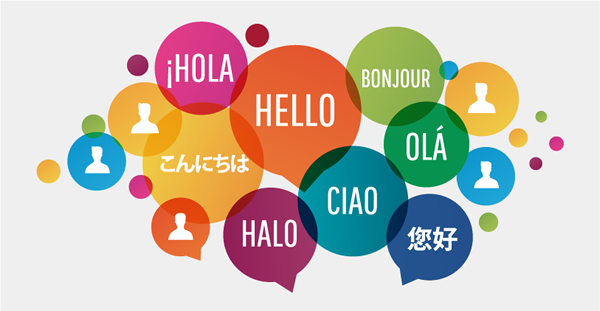The Study of Foreign Languages: Learning to Bridge the Culture Gap at Cape Henry Collegiate
Students and Faculty in the Language Department Enjoy Learning and Using Their Knowledge of Languages to Communicate Both in School and Abroad.

Cape Henry’s foreign language department teaches the students the importance of knowing another language and culture. Photo Credit: Digital Addict Blog
Cape Henry has a remarkable foreign language department, using both grammatical and cultural structures in the classroom to create well-rounded students in their language of choice. Whether it is Spanish or French, the teachers are passionate about showing their students the beauty and benefits of knowing a second or third language.
Madame Tangredi, a new French teacher at Cape Henry who has come from overseas comments, “I am quite impressed with the attitude and level of curiosity the students at Cape Henry have. The ability to be curious helps you learn a second or third language as well as not being afraid to take risks in speaking or communicating in a new language.” The theme of curiosity is clear in many of the language students, including Taylor Perry (‘22) who is taking both Spanish and French this year. “I am doing really well in both classes,” she says. “Learning basic french helps reinforce my basis of Spanish and learning advanced Spanish helps me learn cognates and similarities, which helps me understand french more.” Taylor’s curiosity is just one example of students being curious and inspired to learn another language, as many students, although only required to take a language for three years, take it for four and go into the AP levels of Spanish or French.
Although some students, like Berk Alptekin (‘21), know more than one language fluently. Berk, fluent in English, French, and Turkish, not only speaks well, but he is also inspired to help others speak and communicate in a language other than English. As a teacher’s assistant to one of the French teachers, Berk is expanding his knowledge of french by teaching it, as well as giving his students someone closer to their age to learn from. “It is nice to know another language but is difficult sometimes trying to think or speak, say English, and my mind switches to french randomly,” he comments. “The students I think appreciate having someone their own age to help them learn. But not to give them the answers of course,” he adds. The opportunities students have in the language department is endless, and teaching a class is just one of many special exceptions Cape Henry makes for its language-excelling students.
Knowing more than one language fluently does not only apply to the American students but also the foreign exchange students. The exchange students enjoy speaking in their native languages to each other, though many of them speak English very well. Andy Fan (‘21) says that speaking English “is not difficult anymore, but two years ago [when he first came in freshman year] it was much more challenging. The slang and vocabulary was difficult to pick up on…and many of the students talk too fast for me to understand everything. There is also a conflict with the Chinese students not understanding the American accent and the American students not understanding the Chinese accents.” However, he, as well as the other exchange students, really enjoy their time at Cape Henry and learning English here helps quite a bit.
One issue that concerns not only the community but also the world in a sense, is whether all people should be at least bilingual. Berk mentions how people should be bilingual, because “it is conceited to just know one language or culture,” and Andy agrees that learning a language “is not just learning the words and phrases but also another culture, and it is much more helpful when you travel.” However, Taylor said that being bilingual has “lots of benefits, but if it doesn’t interest someone, they could spend their time doing something else.” Madame Tangredi adds that “as long as they are open to at least trying to learn a new language and culture, it is enough to try and bridge the language and culture barriers.” The two sides can both be debated further, but all the students at Cape Henry are curious and passionate about learning a new language and the cultures it is related to.
